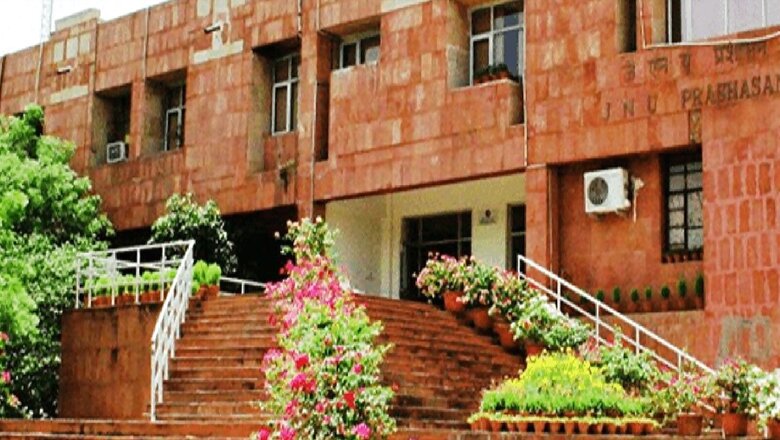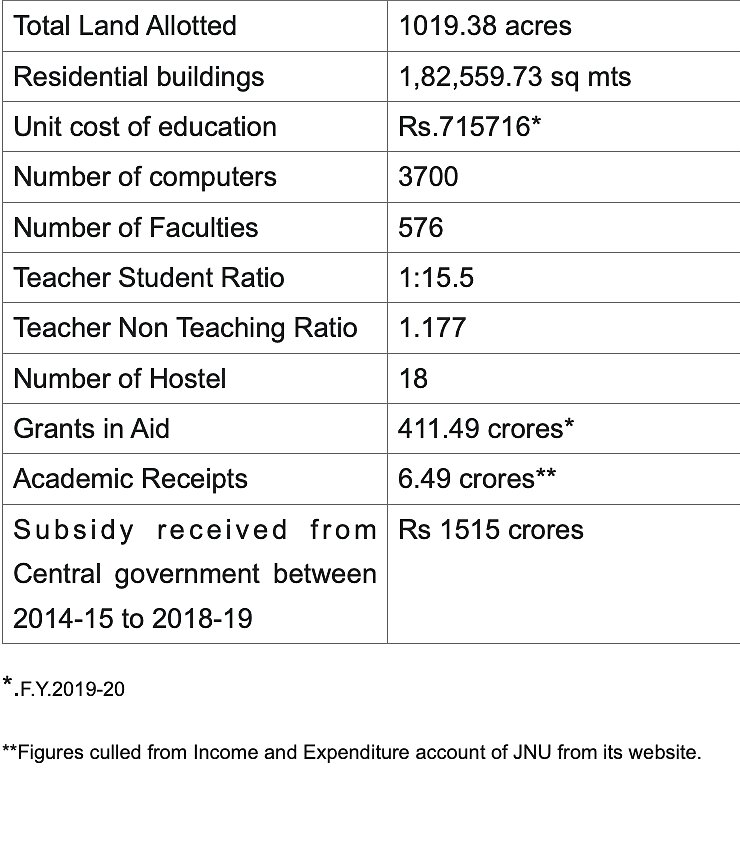
views
The Jawaharlal Nehru University (JNU) is a public central university established in 1969 by an act of parliament and was named after Jawaharlal Nehru, the first PM of India. During the discussion for forming the JNU, Bhushan Gupta, the MP echoed in the parliament that JNU should inculcate ‘scientific-socialism’ and ensure noble ideas in mind and provide accessibility to students from weaker sections of society. This was a university that was meant to be the Harvard of the Third World and a model institution for social sciences and research.
As per the profile of the JNU, the aims of the university are the very Nehruvian objectives embedded in the founding of the University – national integration, social justice, secularism, a democratic way of life, international understanding and a scientific approach to the problems of society. These had built into them constant and energetic endeavour to renew knowledge through self-questioning.
JNU is meant as a premier institute of India where the Central Government has been doling out subsidies in the form of grants lavishly since the inception of the university. Now, lets us have a cursory look at the stats with respect to facilities and financials in JNU.

52 long years have passed since the inception of JNU in 1969. It is the time to audit for introspection. Now lets us look at how far this institution has lived up to the ideals for which it was established.
One of the ideals for starting JNU was that it should come up as a Harvard of the Third World. Despite having the best facilities, infrastructure, faculties and teacher-student ratio, JNU as an institution is nowhere in the world to be reckoned with. Far from being an institution of acclaim, it has not come up even near to the ideals of the founders. As per the 2019-2020 Center for World University Rankings (CWUR), JNU has a world rank of 974 with a research performance rank of 1196. As per the QS World University Rankings 2021, JNU could not find a place in any of the top 1,000 spots of global rankings last year. Even the quality of research is far poorer in comparison to any global standards. So much so that it ranked below many universities in South East Asia in terms of research.
Also Read: Once Oxford of the East, Allahabad University Has Become a Relic of the Past
Another goal of JNU was scientific socialism and social justice. Socialism aims at equitable distribution of resources. On an average per day expense out of the public money is Rs 1.1 crores. The unit cost of education is 7,15,716 rupees which is very high. In the fiscal year of 2019-20, JNU has received 411.49 crores as Grants in aid and subsidies against which it has received only 6.49 crores as academic receipts which is just 1.4% of the total grants. The ratio of academic receipts in comparison to grants is probably the lowest of any university by any standards. It is jokingly said that if you want to talk about class exploitation, you come to JNU, but if you want to see “exploitation of public money’’ you join as a student here.
It is jokingly said that if you want to talk about class exploitation, you come to JNU, but if you want to see “exploitation of public money’’ you join as a student here.
Another important ideal that the founders envisaged was imbibing the feeling of national integration, democracy and secularism as grooming ideas for the students. Far from being a seeding ground of democratic values and nationalism, the ‘self-questioning’ mind of the students started questioning anything which is Indian. The basic ethos brewed was to propose nothing, question and oppose everything. Even the communist ideas for which it is known for have been imported and borrowed from the western political thinkers like Marx, Gramsci, Leon Trotsky, Rosa Luxemberg, Mao, Lenin and so on. No idea of egalitarianism, democracy and socialism has been ever culled from Indian political thought be it modern or ancient.
Far from being secular, this institution has become the most politicised campus where everything is coloured in left and non-left ideologies. Students are free to flaunt the attendance criteria, hostel norms and administrative instructions since they are ‘groomed’ to disdain any ‘authority’ or rule of law. They can use any means be it violent or otherwise. They have an unbridled ‘right to speech and expression’ which they claim as sacrosanct. This right is used to question the very ‘nation-state’ in the garb of opposing the government. Though they claim to stand for questioning the powers that be, instead they question the very ‘state’ instead of the government.
Since its inception, far from being a Harvard, JNU remained an unchanged hotbed of academic intrigue, ideological warfare and continuing student unrest. The students, whose purpose of going to the university is to get a critical and scientific understanding of things, are indoctrinated in ideologies and work more on political issues than on their studies. This culture of politics through student unions is so dominant in the cultural ethos of JNU that students are ready to use any means to get their way out. The net result is controversies that are not new to JNU.
JNU was shut down for 46 days by the Indian government in 1981 after violence by student unions much before the present controversies. In the name of democracy and the rights of students, campus life is politicised by Student Unions. On 24 October 2008, the Hon’ble Supreme Court of India stayed the JNU elections and banned the JNUSU for not complying with the recommendations of the Lyngdoh committee.
In 2010 a “JNU Forum Against War on People” was organised by the Democratic Students’ Union (DSU) and All India Students Association (AISA) to celebrate the killing of 76 CRPF personnel in Chhattisgarh. In April 2000, two army officers who disturbed an Indo-Pak Mushaira at the JNU campus were beaten up by agitated students. On 9 February 2016, a cultural evening was organised by 10 students of DSU at the Sabarmati Dhaba, against the execution of the 2001 Indian Parliament attack convict Afzal Guru and separatist leader Maqbool Bhat, and for Kashmir’s right to self-determination. Anti-India slogans like “Pakistan Zindabad” (“Long live Pakistan”), “Kashmir ki azadi tak jung chalegi, Bharat ki barbadi tak jung chalegi,” were reportedly raised at the protest meet. JNU administration ordered a “disciplinary” inquiry into the holding of the event despite the denial of permission, saying any talk about the country’s disintegration cannot be “national”.
This institution is turning out to be a white elephant that is squandering away the precious resources of the nation. Instead of being an example of a temple of education, it has turned out to be a grooming ground for agitators and lumpen and disgruntled elements. JNU has failed as an institution. It is time to change this ethos of institutional decadency.
The writer is an independent columnist. The views expressed in this article are those of the author and do not represent the stand of this publication.
Read all the Latest Opinion News and Breaking News here
















Comments
0 comment